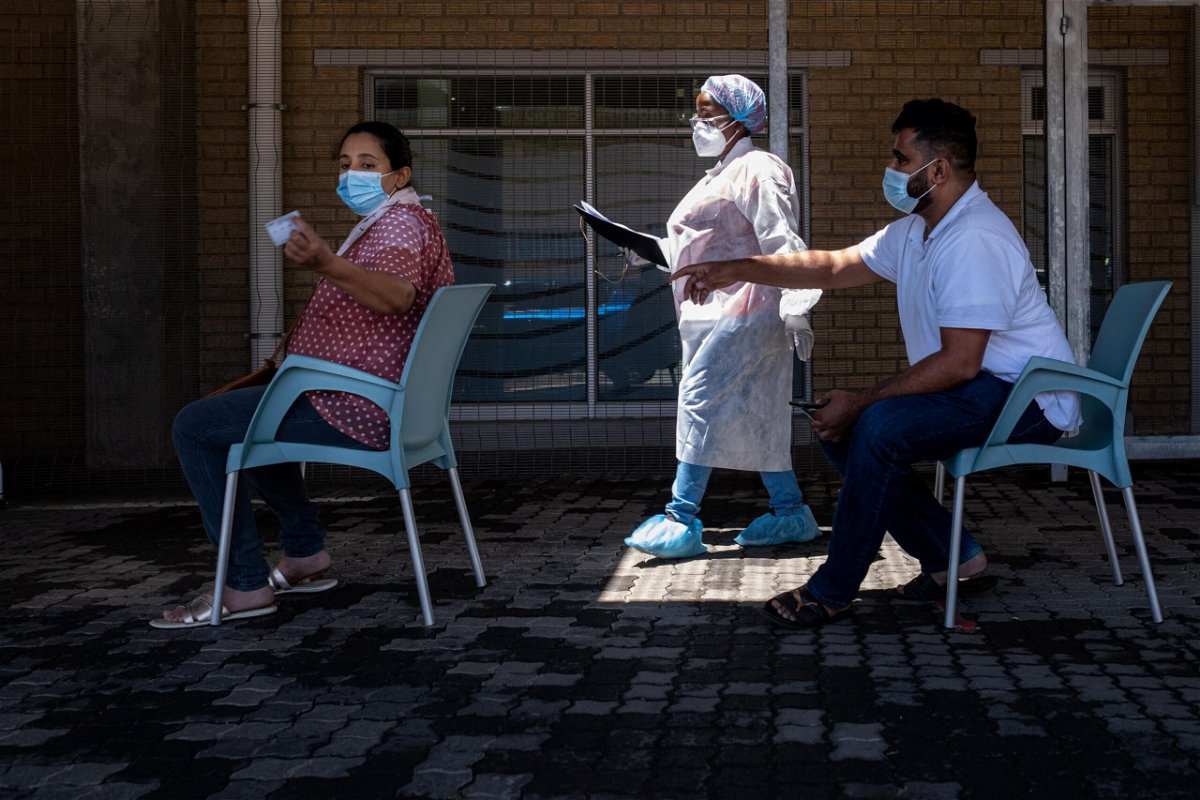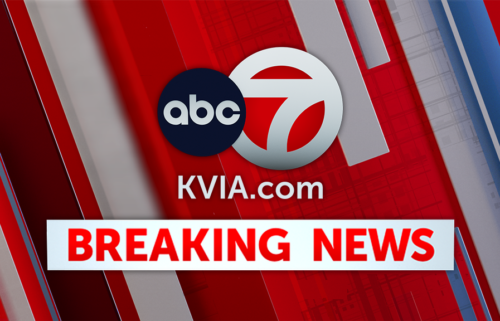South Africans brace for the worst amid Omicron surge

People queue for a PCR Covid-19 test at the Lancet laboratory in Johannesburg on November 30.
By Larry Madowo and Bethlehem Feleke, CNN
Johannesburg’s Rivers Church, a trendy Christian community for the city’s hip and spiritual, has suspended in-person services indefinitely due to a new surge in Covid-19 cases in South Africa. “We love and miss you but stay safe,” wrote the church’s senior pastor Wilma Isabel Olivier on her Instagram.
More than 1,000 miles south, in the Western Cape, an event popular with teenagers graduating out of high school was canceled at the last minute with some partygoers already on scene.
“Almost all schools set to attend Plett Rage have positive cases,” organizers wrote on social media as they announced their decision to cancel the event. “We are shattered. Our event site is built, all staff are ready to welcome you with open arms after months of not working.”
An interview of disappointed matriculants quickly went viral as they complained about having driven six hours and spent hundreds of dollars to be there. “The boys came to party and it got canceled, just like that,” a teenager named Josh told news channel eNCA. “We were bodysurfing and the jol (party) was still on and we get out of the water and we hear from everyone in the parking lot that it’s off!”
The unhappy closures and cancellations come as the country enters its fourth wave of the pandemic. On Friday, it surpassed the 3 million Covid-19 case mark as infections soar throughout the country, days after health officials warned the world about the potentially more contagious Omicron variant. It is now dominating daily infections which have increased five-fold in just one week, President Cyril Ramaphosa said Monday in his weekly newsletter, adding that nearly a quarter of all Covid-19 tests were coming back positive.
As Ramaphosa’s government considers a nationwide vaccination mandate, some companies are going ahead with it. On Monday, the South African telecom conglomerate MTN announced that it would require all employees to be fully vaccinated by January or they would be fired.
“As an employer, we have a responsibility to ensure that our workplaces are guided by the highest standards of health and safety,” MTN Group President and Chief Executive Ralph Mupita said in a statement.
It follows similar requirements from two other large companies headquartered here: lender Standard Bank and the insurance company Old Mutual.
South Africans are now bracing for what they fear will be another hard lockdown, with many pandemic-weary businesses expressing little appetite for the crippling economic consequences of potential new restrictions.
“It feels like being in prison,” 38-year-old Mulusi Gumbo told CNN as he dispensed hand sanitizer to guests entering a restaurant in the Melville suburb. “I’m tired of all these waves and lockdowns.”
South African authorities haven’t indicated that they’re considering another shutdown but speculation is high that Ramaphosa could announce one during his next Covid address.
The Restaurant Association of South Africa is so concerned about the threat of an economic shutdown that it wrote to Ramaphosa, imploring him not to do it. “What we’re trying to do is avoid any threat of lockdown on the restaurant sector,” the association’s CEO Wendy Alberts told SABC News.
“We want the government to take strong accountability that they haven’t properly prepared, or if they have properly prepared the healthcare system, to give evidence that it can manage or maintain the different waves that come in.”
“Especially for small businesses, I don’t think we can afford to go through another hard lockdown. I just think that will be very detrimental to the economy,” co-founder of an insurance startup Ndabenhle Ngulube, told CNN while having lunch with friends in Johannesburg.
Each wave of the outbreak has seen a raft of punitive restrictions, including a ban on the sale of alcohol — a sore point for a country with a significant population of liquor lovers.
This time round, the Beer Association of South Africa has gone to court pre-emptively trying to get a judge to declare previous bans “irrational, invalid and set aside.”
Ndabenhle, 31, says he’s doing his best to be careful while still enjoying the holidays. “I’m trying to stay safe and cautious, but at the same time, trying to at least have a little bit of fun.”
Anti-vaccine sentiment
Gauteng province, which includes the city of Johannesburg, appears to be the epicenter of the surge in cases and the Omicron variant. But the city has shrugged off this latest scare.
A Friday night raid by the Johannesburg Metro Police Department and city administrators found revelers partying as usual in parts of the Inner City. Newly elected Mayor Mpho Phalatse, a medical doctor, tweeted that she was “disturbed by the level of lawlessness” she saw. “None of the night clubs visited were screening patrons for Covid, completing attendance registers, managing numbers, ensuring ventilation as well as other Covid protocols. No more!”
Even though public health authorities have encouraged South Africans to get vaccinated, hesitancy persists within parts of society. Some are still not convinced despite the Omicron variant fueling a surge in cases across the country, and early research indicating that the variant is more likely to reinfect people.
“I think, in the past 18 to 24 months, misinformation and conspiracy theories won and science lost,” Ndabenhle’s friend Passmore Musungwa tells CNN.
Musungwa is a 33-year-old pharmacist who’s witnessed the waves of the pandemic and the growing anti-vaccine sentiment firsthand in the hospital he works at. “It just tells you that we need to rethink how we do science communications, because it’s not about learning but understanding what the scientific method is, so that people can have trust in the science.”
Another friend at their table only recently decided to get vaccinated because she needed it to travel to see her sister. “I do think everyone right now is kind of tired of Covid and the new variant, Omicron,” 29-year-old Kgali Molefe tells CNN. She bristles at friends or family who have sent her different articles about why she should get the shot.
“I know how to do research myself… I just think that everyone should be treated fairly in terms of making a decision that they want to do when they are ready.”
The-CNN-Wire
™ & © 2021 Cable News Network, Inc., a WarnerMedia Company. All rights reserved.

